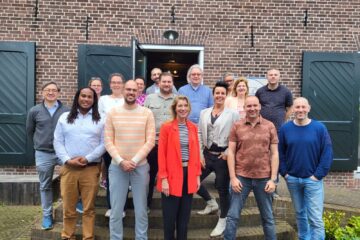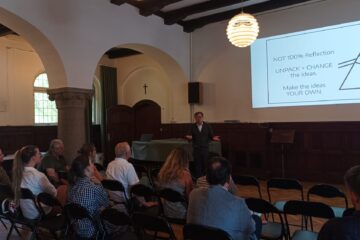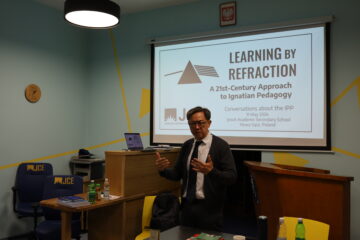Learning by Refraction: A Practitioner’s Guide to 21st-Century Ignatian Pedagogy has been translated into Thai and is being used by Catholic schools all over Thailand through the efforts of the Catholic Education Council of Thailand.
The book was written by Fr. Johnny Go SJ and Rita J. Atienza and was published by the Ateneo de Manila University Press and the Jesuit Basic Education Commission on the occasion of the 25th anniversary of the publication of Ignatian Pedagogy: A Practical Approach. Neither author expected that the book would be used outside the Philippines.
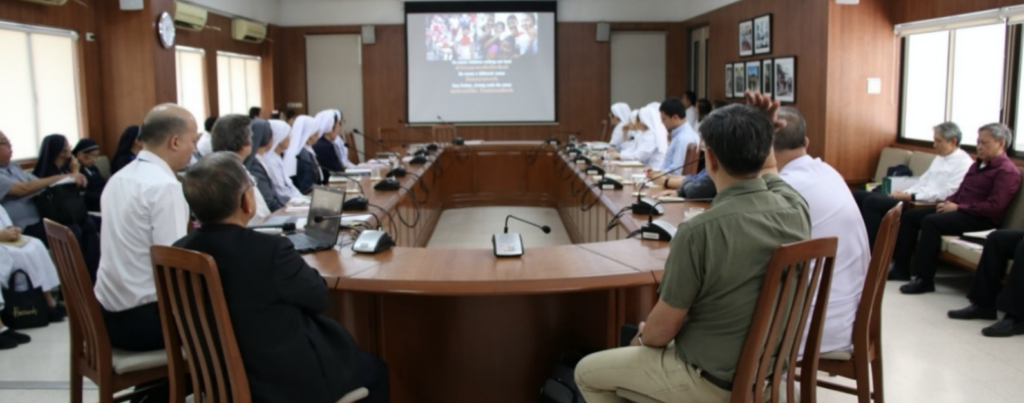
We interviewed the most significant advocates of the IPP in Thailandand asked them what led to their decision to adopt Ignatian Pedagogy for the Thai Catholic schools, and 25 years later, to translate and publish this workbook into Thai.
Sumitra Phongsathorn is the Chair of the Catholic Identity of Schools Commission of the Catholic Educational Council of Thailand. This is her account:
I have been an executive member of the Catholic Education Council of Thailand for many years. Having been a student of the Jesuits at the Institute of Catholic Educational Leadership Program at graduate level at the University of San Francisco, California, U.S.A., I was entrusted with the position of chair of the Catholic Identity of Schools Commission.
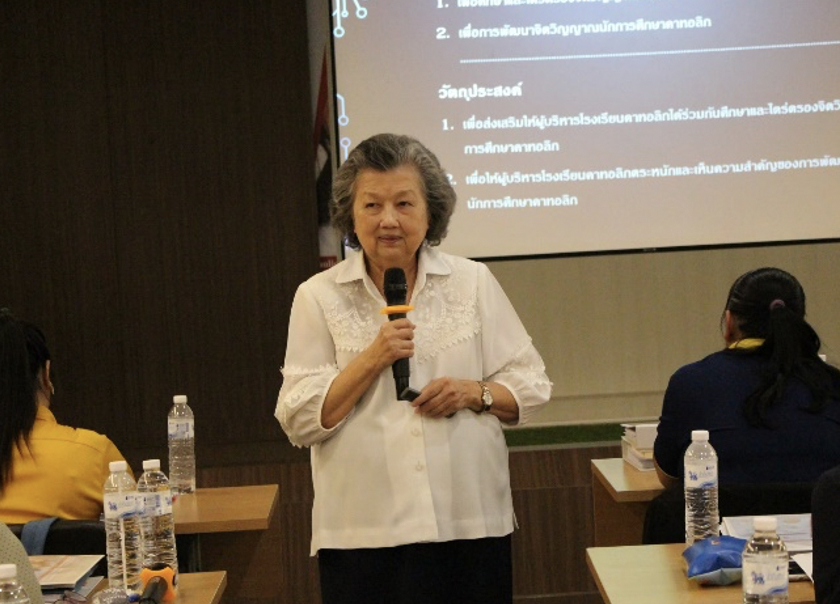
When “Ignatian Pedagogy Paradigm” was published in 1993, the East Asia and Pacific Office of Jesuit Education (now known as Jesuit Education – Asia Pacific) in Manila was still offering the SSAP (Secondary School Administrators Program). This part of school renewal program was started in 1984 when participants met in August every year and later, every other year using the facilities of the East Asian Pastoral Institute (EAPI) on the Ateneo de Manila campus. The Jesuits were very generous in inviting Catholic school administrators from Malaysia, Singapore, and Thailand to join the program even if there were no Jesuit schools in these countries.
That was when I together with four to five other school administrators from Thailand were exposed to the Ignatian Pedagogical Paradigm (IPP). When we came back home, we asked the Catholic Education Council to sponsor the translation of the text of IPP into Thai. Once translated and published, we distributed the copies to Catholic schools with only some explanation of how the document came about. No training program was offered as there were no Jesuit school teachers/administrators in Thailand at the time.
About ten years after that, I was invited by the Provincial Superior of the Ursulines in England to visit Ursuline schools there in my capacity as coordinator of Ursuline schools in Thailand. At Saint Angela’s School in Wimbledon, I was given a poster displaying the school’s learning cycle. I learned that the Saint Angela’s School worked closely with the Jesuit school in the same town. Saint Angela’s learning cycle was very similar to the IPP model. I left the poster in my office for years without doing anything about it outside of Mater Dei School.
One day Dr. Anupan Kitnitchi visited my office and was attracted by the poster and asked me about it. Not only did I explain the poster to him, but I also gave him the document of the Characteristics of Jesuit Education (in English) and the Thai version of IPP to read. Dr. Anupan was an expert in putting theories into practice through designing short learning programs that participants learn by doing. He has been helping the Mater Dei School in facilitating the drafting of our strategic plan and continued to help Mater Dei in putting ideals into reality in classrooms.
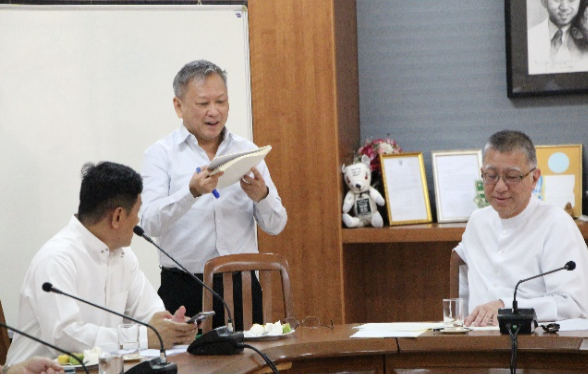
Together with his partner, Mr. Pongnarin Ratanarangsikul, he revised the translation of “Ignatian Pedagogy: A Practical Approach” to distribute at the training seminars. From January 2014 to May 2017, four days program of Ignatian Pedagogy were given 38 times to 1,495 teachers in 19 schools, 3 religious orders and 3 dioceses. Similar type of seminar was also given to Catechism teachers in 3 schools in 2017 and 2018.
Fr. Decha Arpornrat has been the Secretary General of the Catholic Educational Council of Thailand, and this is what he has to say:
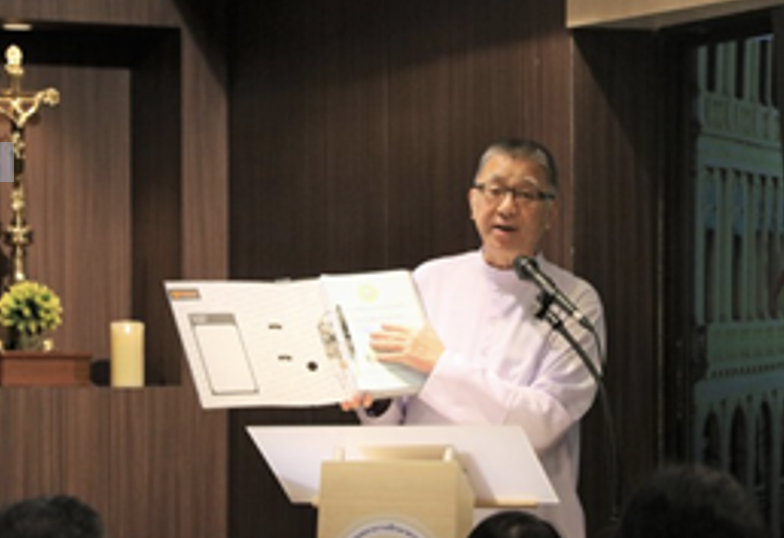
When the Bishop Conference of Thailand appointed me Secretary General of the Catholic Educational Council, I did a lot of thinking and praying, and came to the conclusion that I would do my best to help Catholic schools realize their identity and create a genuine Gospel value schools where students feel safe, are engaged in learning and are formed to serve society with honesty, respect and compassion.
The Church offers many documents to offer us direction, but we need something more like a handbook that we could fall upon. The Ignatian Pedagogical Paradigm helps give us guidelines into the learning process and the running of a Catholic school. I asked Dr. Anupan to focus on “Reflection” as the core practice of Catholic school.
On August 19, 2013, Fr. Johnny Go was the keynote speaker at the annual seminar of the Catholic Education Council. There were over 480 participants at the seminar from 11 dioceses of Thailand and about 200 schools. Father Go was invited to speak on IPP. The day after, he also conducted a one-day workshop on Ignatian reflection at the Mater Dei School.

I had no hesitation to translate “Learning by Refraction” once kindly permitted. It would be very helpful to teachers. With Covid-19, we are at a slow beginning, but “Learning by Refraction” will help us in making a difference in running a school.
In March 2018, Fr. Johnny Go SJ kindly gave an introduction to “Learning by Refraction” at the Mater Dei School. Bishop Jamnien Santisukniran was present as well as 53 other Catholic school leaders.
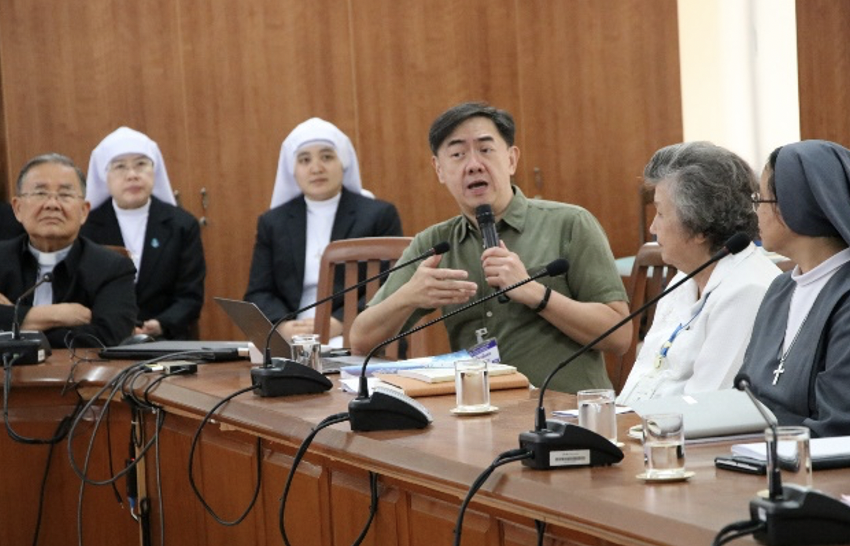
Dr. Anupan Kitnitchi is the head trainer for the Catholic Educational Council of Thailand. He agreed to help Fr. Decha Arpornrat, Secretary General of the Catholic Education Council, in working with groups of schools (diocesan and Religious Order schools) and individual schools in promoting Catholic identity of school based on the Church documents. Their efforts focused on promoting “Reflection” as key to internalize and create meaning.
My training and career is in the legal business. However, I am a Catholic and went to Saint Gabriel Brothers School. In high school and at university level, I was actively involved with the Y.C.S. activities. I found SEE-JUDGE-ACT process an excellent tool in leading an active Christian life. Besides the law, I had some training in facilitation skills. Once involved with Mater Dei School, I realized that I could make a contribution to the Catholic Church by giving seminars on topics that would help improve the quality of Catholic education.
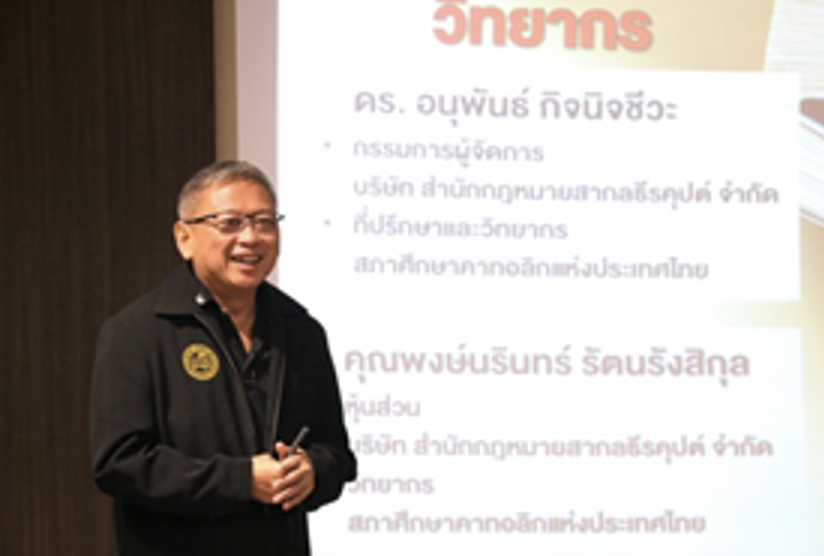
Fr, Decha Arpornrat, Secretary of the Catholic Education Council and Ms. Sumitra Phongsathorn commissioned me to assist dioceses and schools in identifying their identity as Catholic school in their strategic plans and in their process of teaching and learning. I found the Ignatian Pedagogy Paradigm very helpful as a tool to help school create a Catholic school environment, establish a good relationship between teacher and students and offer ownership in learning to students by creating facilitation skills to teachers. I concentrate on teachers’ skills in giving a ‘big picture’ before engaging students in the learning process using the see-judge-act process. And, most important of all, teachers need to learn ‘reflection’ for themselves and for helping students to be mindful and find meaning in their learning.
“Learning by Refraction” brings IPP to a more practical level and adds more to the IPP. It is a wonderful tool to help teachers revisit and revitalize the learning process that IPP introduce.
Mr. Pongnarin Ratanarangsikul assists Dr. Anupan in the training efforts of the Catholic Educational Council of Thailand.
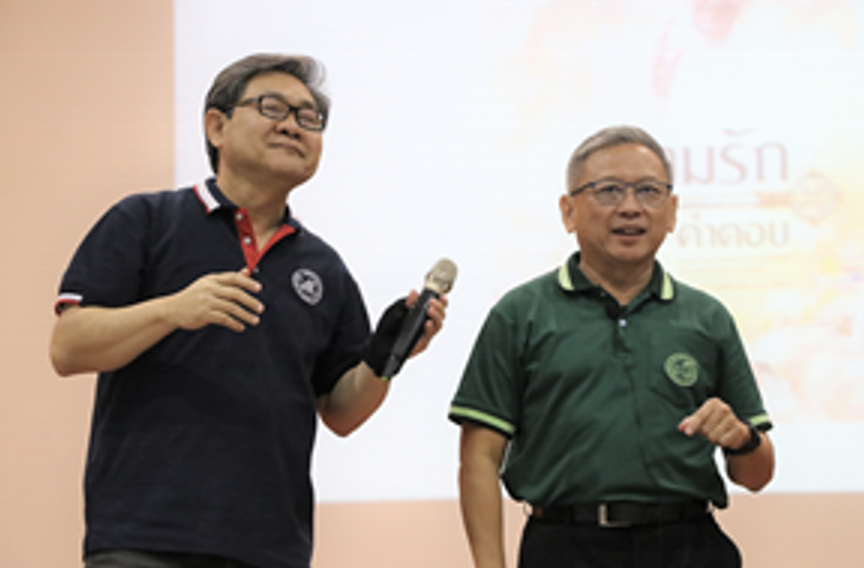
When I had a chance to read Learning by Refraction in 2019, I was very excited about it. “Learning by Refraction” puts IPP into life of present-day teaching and learning. Not only is it faithful to the essence of IPP, but it also includes new learning theories and practical experiences of teachers. It would be so helpful for teachers to have “Learning by Refraction” as a handbook.
Fr. Decha kindly supported the translation of it into Thai as soon as we received permission from Fr. Johnny Go and the Ateneo de Manila University Press. Mr. Pongnarin Ratanarangsikul translated it. Mater Dei teachers helped Pongnarin use the right Thai equivalence of the educational terms as well as helped him to make it as clear as possible in Thai for teachers.
The Thai version of “Learning by Refraction” came from the printing house just in time for the first group to be trained. While waiting for the printed Thai copies, Dr. Anupan designed the training program using the English and the draft of the Thai translation. He called the seminar “Enhance IPP by Refraction.”
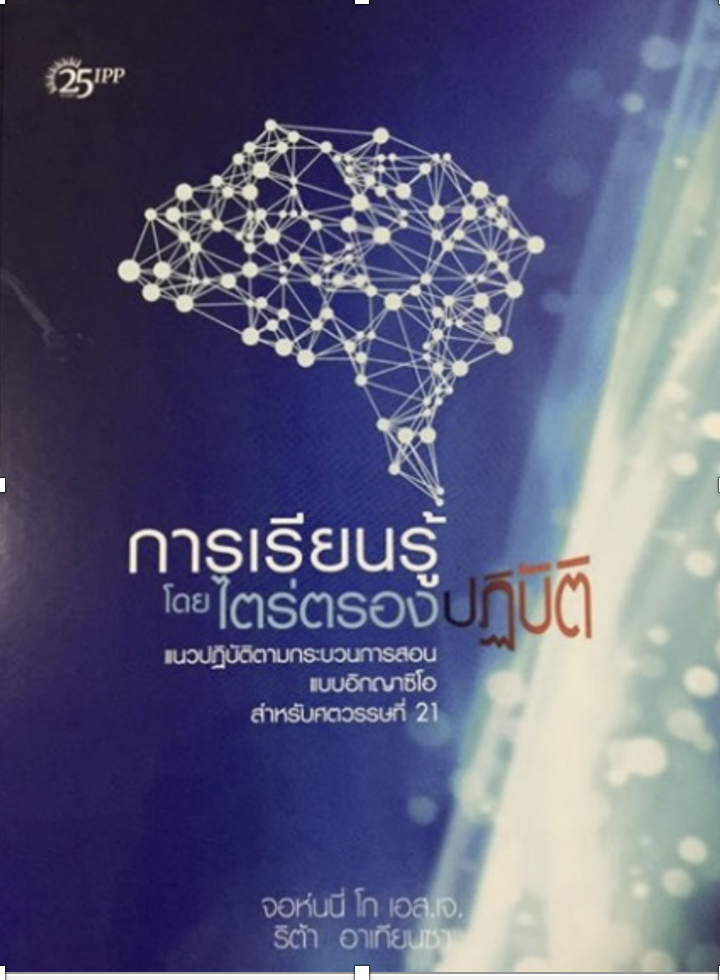
However, IPP was adapted to the “Learning Cycle” of the particular school. For example, at Mater Dei, we call our learning cycle, “MDLC” (Mater Dei’s Learning Cycle). And Mater Dei School had the privilege of having 36 teachers as the first group to be trained in March 2020. Mater Dei’s seminar was called “Enhanced MDLC by Refraction”.
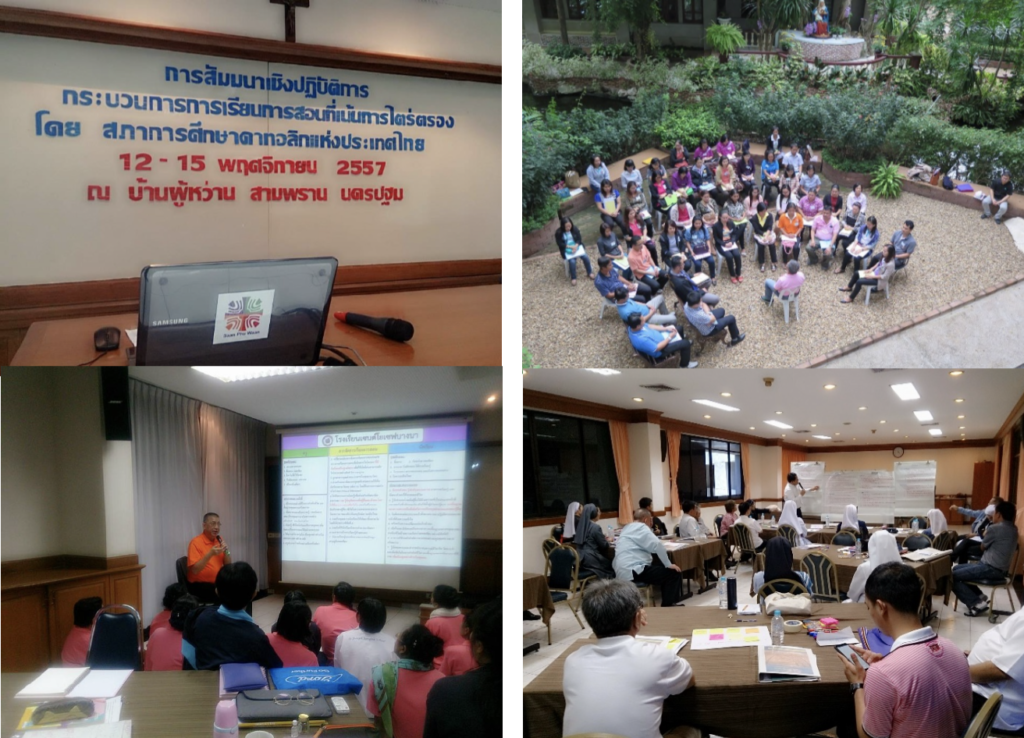
Unfortunately, COVID-19 prevented us from proceeding as planned. The second group was only trained in August, and that was Regina Coeli School of the Ursulines in Chiang Mai. A Saint Paul de Chartre school will be the third and the fourth will be another Ursuline school in Bangkok. Training for both will be in November 2020.
The distribution of the Thai edition of “Learning by Refraction” had been set for the annual seminar of the Catholic Educational Council in August 2020, but it has now been postponed to August 2021.
The Spanish and Chinese editions of Learning by Refraction will be available by next year.
